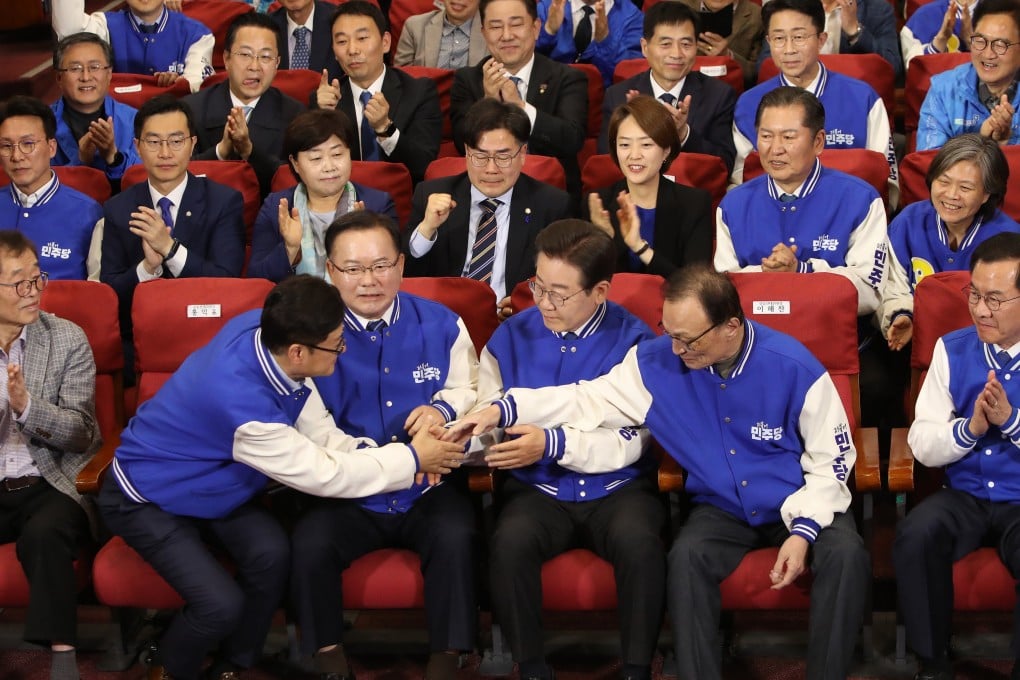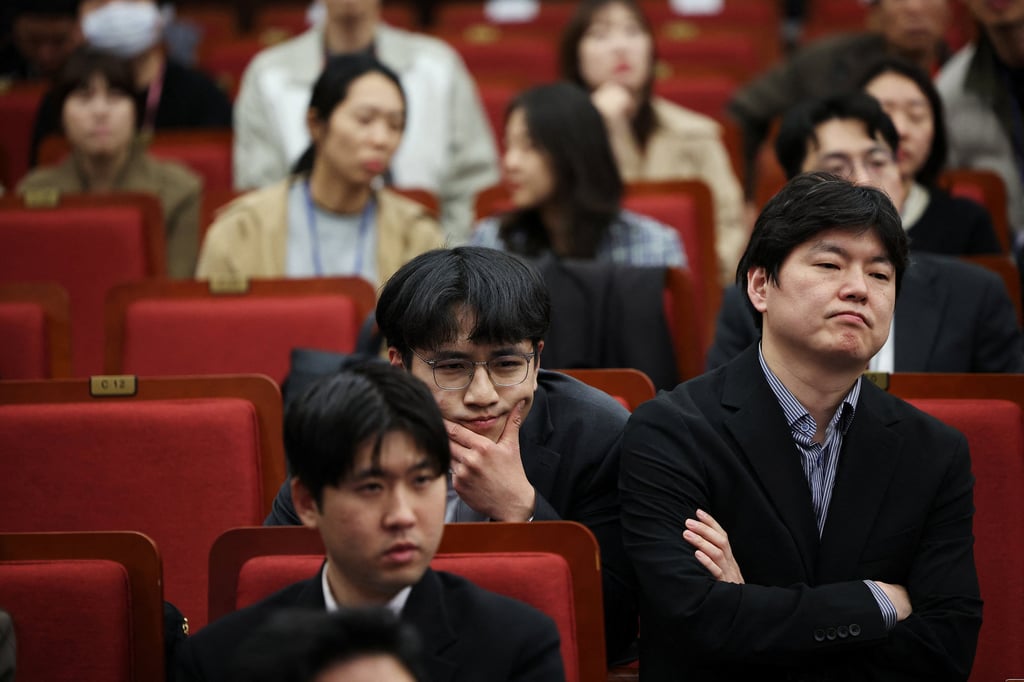South Korea’s liberal opposition set to retain parliament control as voters pass ‘harsh judgment’ on president
- After the election, Yoon will face greater difficulty in pushing through his pro-market reforms in labour, the national pension fund and education, analysts say
- But he would still be able to use his presidential executive orders and veto powers to cope with the opposition-controlled outgoing parliament

South Korea’s parliament is set to remain in the hands of liberals for another four years, with the ruling conservative party facing a defeat in parliamentary elections widely seen as a midterm referendum on President Yoon Suk-yeol.
Analysts say a “harsh judgment on Yoon” is imminent from the electorate, amid unhappiness over inflation, economic woes and a string of recent political missteps by the administration, but the results would not sway his hardline political stance.
The liberal opposition Democratic Party of Korea (DPK) is expected to win up to 196 seats, with Yoon’s ruling People Power Party (PPP) to win up to 105 seats in the 300-seat parliament, state-funded KBS said, citing an exit poll on Wednesday by South Korea’s top three TV broadcasters.

The reformist Rebuilding Korea Party (RPK), led by former justice minister Cho Kuk and founded on March 3, placed third. The party has influenced the shifting mood of voters, successfully attracting those advocating for swift and extensive reforms.
Voters have voiced their dissatisfaction with inflation and economic challenges through the ballot, highlighting a widespread sentiment that the Yoon administration has fallen short in its commitments to rejuvenate the economy and foster a more equitable society, according to analysts.
“Voters delivered a harsh judgment on Yoon through these elections, which were widely viewed as a midterm referendum on his performance on the job over the past two years”, Choi Jin, head of the Institute for Presidential Leadership, told This Week in Asia.
“Many moderates and swing voters shifted allegiance to the liberals, expressing their anger and frustration at the declining standard of living and high food prices”, he said.
